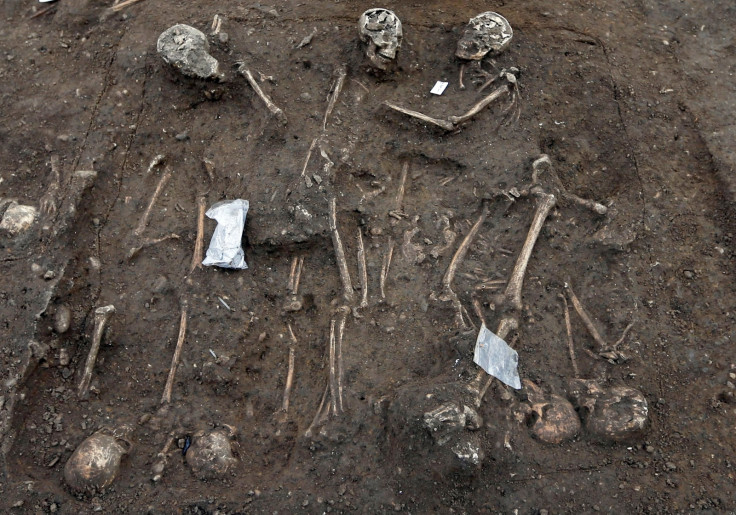What is a body farm? Australian soldier who 'died' 6 times does not want to waste money on burial
"Why would I want to throw $10,000 away on a funeral I'm not even going to?" Frank Scott said.

An Australian soldier, a cancer survivor who has "died" six times after being shot in combat zones and also survived 15 heart attacks, said he wants to donate his body to the country's only body farm where his corpse will serve science long after his death.
Frank Scott does not wish to waste money on a burial and would rather let his body rot in an open farm where researchers study body decomposition. "I've had a good life, mate," he told Daily Mail Australia, revealing his unusual wish.
The 58-year-old from Albury city on the border of New South Wales and Victoria has also lost half a lung during the 2004 Boxing Day tsunami after a speedboat speared into his Thai hotel room.
The body farm
The survivor has reportedly donated his body to the Australian Facility for Taphonomic Experimental Research (After), which is better known as the "body farm". More than 500 people have also said they will donate their bodies to the farm.
The farm, which officially opened in 2016, is located on the outskirts of Sydney in a remote bushland environment, according to the UK daily. It is a 12-acre site that has been left as natural as possible.
People donating their bodies to the farm do not get any formal grave or any traditional funeral. Their bodies are left on the ground under the sun or are buried with other cadavers to slowly decompose.
The main aim of the research group is to solve problems surrounding the physical, chemical and biological processes of human decomposition. The facility also assists police find, recover and identify victims of misadventure and foul play.
Scott, the father-of-six, told the website that he wanted to be a part of After's experiments from the moment he read about the facility. "I thought to myself at the time, having buried my parents, having buried two children, that really, personally I got very very little out of either going to those memorial services or standing at the side of a grave.
"I've never ever been back to any of those graves. And I always thought there's got to be a better way.
"I read this article about the facility and I thought, 'That's the way'. There's got to be more than dropping a body in a hole in the ground.
"Without a doubt, this is the best decision I have ever made in my life," Scott reportedly said.
The former soldier also said his multiple near-death experiences and the money he spent on his family members' funerals prompted him further to join the experiments. "Why would I want to throw $10,000 (£7495.20) away on a funeral I'm not even going to?" Scott questioned.
He explained that donating your body to the group is not as simple as it sounds. The donor has to go through a huge paperwork that explains what exactly happens to a donated body. He said he was told that after a body has been on the farm for almost 10 years, the remains are cremated and ashes are taken to a university memorial.
He said that he gets a newsletter from the body donation programme once a year and also carries a donor card in his wallet that states: "I confirm that this is my wish, after my death, to have my remains made available to the Faculty of Science at the University of Technology Sydney. Upon my death please call ... to advise the University."
Scott's adventurous life
Around eight years ago, Scott was forced to retire from the Australian armed forces due to poor health. He had joined the Royal Australian Navy at the age of 15 and was later transferred to the army.
Scott also served the famed Parachute Regiment as part of an exchange programme with the UK. He served in Northern Ireland during The Troubles and in the 1982 Falklands War.
After he returned to Australia in 1983, he completed a Bachelor of Journalism and was soon working for Reuters as a photographer. "Instead of carrying a rifle, I was carrying a camera," Scott said.
"I've been shot up and blown up by every country in the world just about," he added.
Australian Facility for Taphonomic Experimental Research (AFTER)We're excited to officially be launching the Australian Facility for Taphonomic Experimental Research (AFTER)! 29 March 2017Thanks to our partners & innovative researchers, and of course our donors, AFTER could revolutionise forensic science research.Find out more at: www.after.uts.edu.au
Posted by University of Technology Sydney - South East Asia on Friday, April 28, 2017





















